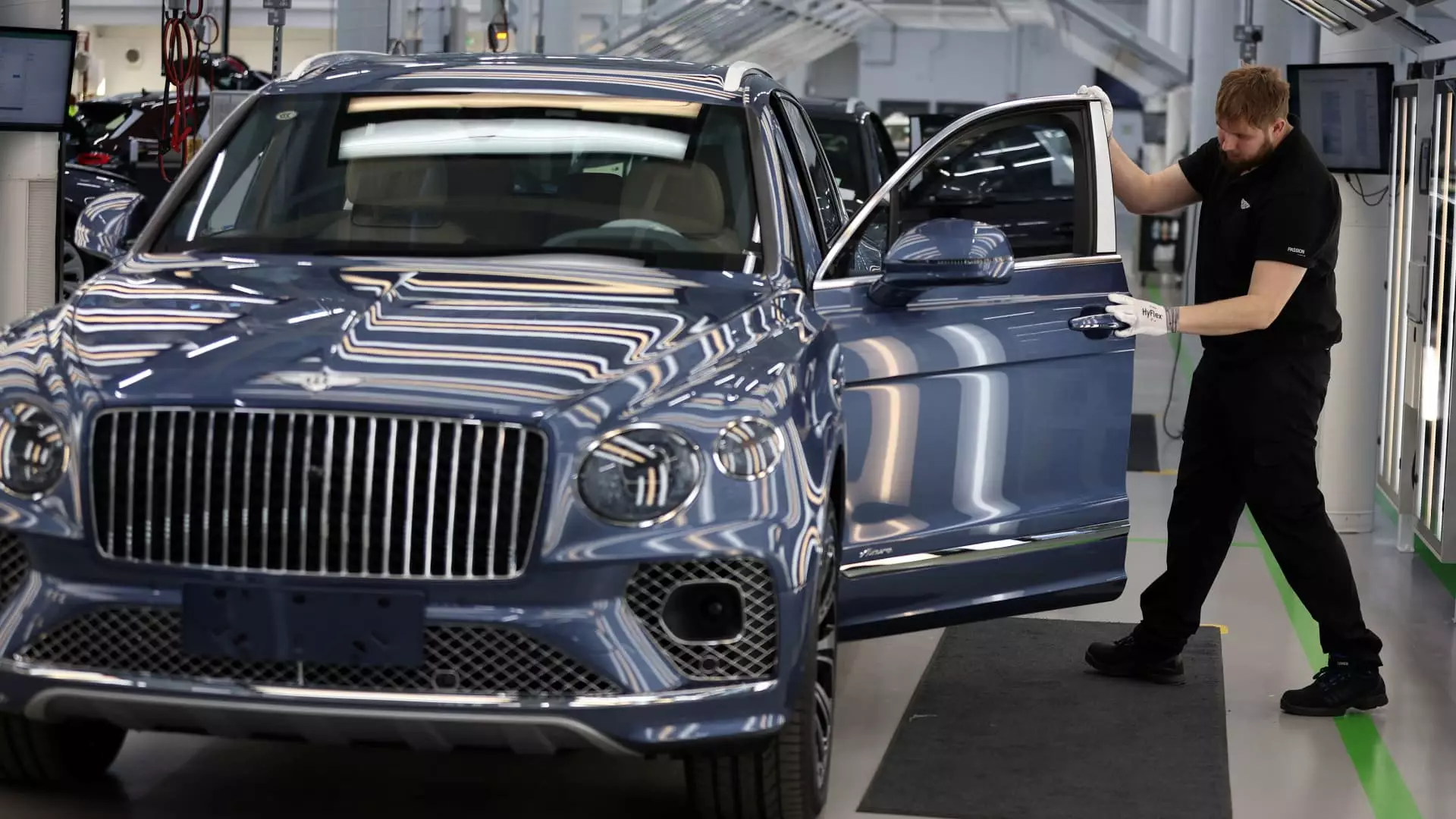Bentley Motors, known for its exquisite craftsmanship and powerful engines, has recently made headlines with its decision to postpone its goal of exclusively producing electric vehicles (EVs). Originally set for the end of this decade, the transition has been delayed to at least 2035, marking a significant shift in the company’s approach to the evolving automotive market. This change is emblematic of the broader challenges faced by luxury automakers as they navigate the complex landscape of consumer demand, legislative pressures, and competitive dynamics.
During an online media event, Bentley’s Chairman and CEO, Frank-Steffen Walliser, candidly acknowledged a dissonance between industry expectations and consumer readiness. Walliser pointed out that the demand for EVs among Bentley’s traditional clientele remains relatively low. This admission raises pertinent questions about the pace of electrification within the automotive sector, especially for brands that have long been synonymous with powerful internal combustion engines.
The intricate interplay between legislation and market demand plays a crucial role in shaping Bentley’s revised strategy. Walliser emphasized that while regulatory frameworks are accelerating the shift towards electrification, the lack of immediate consumer demand cannot be overlooked. This sentiment mirrors the experiences of other luxury brands that have had to contend with shifting consumer preferences amid a backdrop of environmental concerns and economic uncertainty.
For Bentley, the challenge lies in balancing its storied heritage with future-oriented innovation. The brand’s clientele has historically favored the robust performance offered by formidable engines, an aspect that may clash with the more subdued nature of electric drivetrains. The hesitation to pivot fully to EVs may also indicate an acknowledgment that the path to electrification won’t be a swift one, particularly for brands that offer luxury and performance as part of their core identity.
In response to the current market conditions, Bentley plans to focus on plug-in hybrid electric vehicles (PHEVs) as a bridge to full electrification. The company is committed to introducing a new EV or PHEV each year until 2035, starting with a “Luxury Urban SUV” set to launch in 2026. This hybrid model will allow Bentley to maintain its connection with traditional customer preferences while gradually introducing more advanced electric technologies.
Matthias Rabe, Bentley’s head of research and development, has articulated the significance of PHEVs in the company’s future lineup. These vehicles combine an internal combustion engine with a hybrid system, providing a versatile solution that caters to a range of driving needs. The opportunity to recharge the vehicle’s battery while also relying on a traditional engine offers consumers the best of both worlds, potentially easing the transition to a fully electric future.
The road to electrification, however, poses its own set of challenges. Bentley’s former CEO, Adrian Hallmark, previously cited software and architectural issues as critical derailments for the initial EV rollout. Such technical hurdles underscore the complexities that come with integrating cutting-edge technologies into luxury vehicles, where the exceptionality of performance and comfort must remain uncompromised.
The hurdles are compounded by the fact that Bentley, like many other automakers, now has to contend with evolving consumer expectations regarding technology and sustainability. As the industry races towards a more electrified future, Bentley’s ability to innovate while retaining its unique brand identity will be crucial.
In light of these developments, Bentley’s shift from the “Beyond100” strategy to the newly branded “Beyond100+” reflects a commitment to adapt and evolve in a rapidly changing market. This rebranding illustrates Bentley’s recognition that overcoming the challenges of today will require a more nuanced and flexible approach to electrification.
As Bentley embarks on this transformative phase, the company not only has the task of meeting legislative demands but also the challenge of cultivating a new generation of customers who are receptive to both their heritage and their future. How effectively Bentley navigates this intricate landscape will determine its place among the elite in the era of electrified luxury automobiles.


Leave a Reply